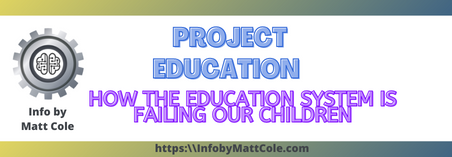Corrective Actions
Corrective actions are a vital component of project planning and management. They are steps taken to address a problem or issue that has arisen during the project, with the goal of preventing the problem from recurring in the future. Corrective actions are often implemented as part of a broader corrective action plan, which outlines the steps that need to be taken to address the problem and prevent it from happening again.
Recently, my role has changed to Project Manager within Corporate FSI (Foreign Systems Interfaces) team at Universal Health Services. While I have been technically managing implementation, and new builds for our Acute facilities involving Physician Billing for the last two-three years, it’s nice to pursue this course, officially.
Why are Corrective Actions Important?
Corrective actions are essential in project planning for several reasons:
- Ensures project success: Corrective actions can help to ensure project success by addressing problems before they become major issues. By implementing corrective actions, project managers can prevent problems from escalating and impacting the project’s timeline, budget, or quality.
- Improves processes: Corrective actions help to identify areas of the project that need improvement. By addressing these issues, project managers can improve processes and increase efficiency, which can save time and resources.
- Increases stakeholder satisfaction: Corrective actions can increase stakeholder satisfaction by addressing issues that impact stakeholders. By resolving problems quickly and effectively, project managers can build trust with stakeholders and improve their perception of the project.
- Prevents similar issues in the future: Corrective actions can prevent similar issues from occurring in the future. By identifying the root cause of a problem and addressing it, project managers can prevent the same problem from happening again.
Steps for Implementing Corrective Actions
- Identify the problem: The first step in implementing corrective actions is to identify the problem. Project managers should gather information about the problem, including its causes, effects, and impact on stakeholders.
- Determine the root cause: The next step is to determine the root cause of the problem. Project managers should analyze the data collected and identify the underlying factors that contributed to the problem.
- Develop a corrective action plan: Once the root cause has been identified, project managers can develop a corrective action plan. This plan should outline the steps that need to be taken to address the problem and prevent it from happening again.
- Implement the corrective actions: The next step is to implement the corrective actions outlined in the plan. Project managers should assign responsibilities for each action and set a timeline for completion.
- Monitor progress: The final step is to monitor progress and ensure that the corrective actions are effective. Project managers should regularly review progress and make adjustments as necessary.
Examples of Corrective Actions
Corrective actions can take many different forms, depending on the nature of the problem. Some examples of corrective actions include:
- Developing new policies or procedures to prevent the problem from recurring
- Providing additional training to team members to improve skills or knowledge
- Conducting a review of the project to identify areas for improvement
- Changing the project plan or timeline to address the problem
- Implementing new technology or tools to improve efficiency or quality
In Summary
Corrective actions are a crucial element of project planning and management. They are steps taken to address a problem or issue that has arisen during the project, with the goal of preventing the problem from recurring in the future. Corrective actions can help to ensure project success, improve processes, increase stakeholder satisfaction, and prevent similar issues in the future. By following the steps for implementing corrective actions and regularly monitoring progress, project managers can effectively address problems and ensure project success.
#infobymattcole
 You can check out Matt’s LinkedIn account, Youtube Channel, or Podcast.
You can check out Matt’s LinkedIn account, Youtube Channel, or Podcast.Introducing my new books, ‘The Art of Critical Thinking’ and ‘The Critical Thinking Model’. Both can be read for free with Kindle Unlimited or $2.99 each via Kindle.





One Comment
Comments are closed.